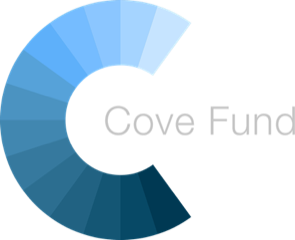Why Are Smaller Funds Worth Pitching?
When founders begin fundraising, it's natural to aim for the biggest names and largest funds they can find. After all, large venture capital funds bring prestige, connections, and deep pockets. However, there's a strong case to be made that smaller funds are often a better fit for early-stage startups, especially at the Seed stage. When we asked the Cove Fund managers, "Why are smaller funds worth pitching?" Their answers highlighted several crucial advantages that founders should consider.
1. Seed Stage Alignment
Seed rounds typically range from $1 million to $5 million. This check size is often too small to meet the minimum investment threshold required by large venture funds, many of which need to deploy $5-$10 million (or more) per deal to make their economics work. Larger funds might participate in Seed rounds, but often only when a company shows unusually strong early traction or fits into a broader strategic play.
Smaller funds, like Cove Fund, are purpose-built for Seed-stage investing. Our fund economics, investment process, and operating philosophy are structured around backing companies at this critical early stage. We look for differentiated technologies, exceptional teams, and large addressable markets, all while understanding that companies at the Seed stage are still proving themselves. We are prepared to bet early and stay committed.
2. Personalized Attention
With smaller funds, founders aren't just "another line item" in a massive portfolio. Each investment matters deeply to the fund's overall performance, which creates strong alignment between the founders and the fund.
At Cove Fund, we work closely with founders after investment. We help shape strategy, provide hiring support, make customer and investor introductions, and offer hands-on guidance when challenges arise. Because our portfolio isn't sprawling, we have the bandwidth to truly roll up our sleeves and help our companies succeed. The early stages are volatile, and having an engaged partner often makes the difference between success and failure.
3. Faster Decision-Making
Large funds often have multiple layers of partners, investment committees, and bureaucratic hurdles. Even when a deal champion is enthusiastic, it can take weeks or months to get a decision. For early-stage companies, time is often critical — not just for fundraising, but for building momentum, hiring key talent, and closing initial customers.
Smaller funds are typically more nimble. At Cove Fund, we pride ourselves on a decision-making process that respects the founder's time. We move quickly from initial meetings to a go/no-go decision, allowing founders to maintain their fundraising pace and focus on building their business.
4. Stronger Alignment and True Champions
When a fund has a $1 billion war chest, even a $10 million investment can become "small potatoes." If things get tough, the fund's attention and resources will naturally flow toward their bigger bets.
In contrast, a $1-2 million Seed investment from a smaller fund like Cove is a material investment. Our success depends on the success of each portfolio company. This drives a level of engagement, advocacy, and long-term support that founders often don't get from larger funds.
We don't just "write the check and wish you good luck." We stay in the trenches with our companies. We help with the next raise, navigate critical hiring decisions, make customer introductions, and serve as true sounding boards when hard choices arise. Because we're local, we can be especially hands-on — often sitting in the same room with founders as they work through critical moments.
5. Community and Network Access
While large funds have extensive networks, those networks are often hard to access for early-stage founders. The partners may be selective about which introductions they make, based on which companies they see as their highest-priority bets.
Smaller funds build and actively maintain networks tailored to the needs of early-stage startups. At Cove Fund, our ties to the Southern California entrepreneurial ecosystem are deep and broad. Founders get access not just to potential customers and investors, but also to peers, advisors, and mentors who can materially accelerate their journey.
Conclusion
Pitching smaller funds isn't just a "backup plan." For Seed-stage companies, smaller funds often offer a better fit, more active engagement, and a deeper commitment to success. The combination of Seed-stage alignment, personalized attention, faster decision-making, stronger alignment, and powerful local networks can provide the exact boost a young company needs to thrive.
At Cove Fund, we live and breathe Seed-stage investing. We champion our portfolio companies from the first check to the exit — and we take pride in being real partners to the entrepreneurs we back.
About Us
Cove Fund is a seed-stage venture capital fund based at UC Irvine’s Beall Applied Innovation, a hub for Southern California entrepreneurs and investors. We invest in early-stage technology and life science companies with differentiated products that address large markets and can achieve major milestones with seed funding.
